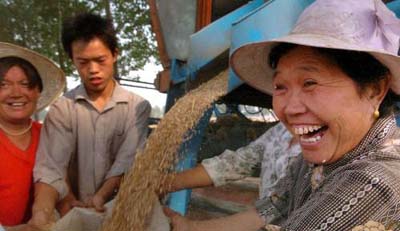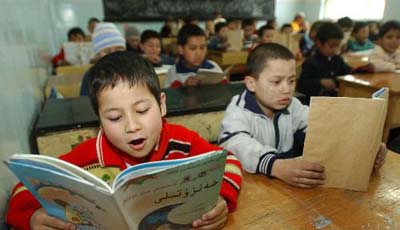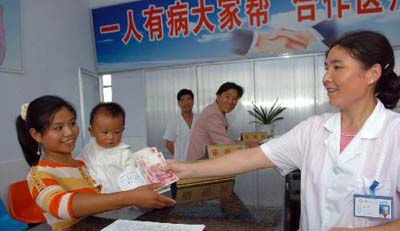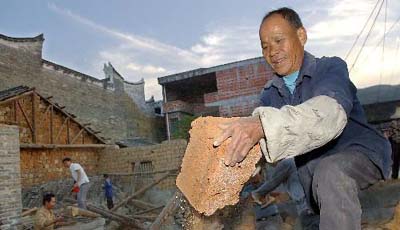|
The central government yesterday released its first major document on the building of a new socialist countryside the primary task in the 11th Five-Year Guidelines period (2006-10).
It embraces ideas set forth by the Communist Party of China (CPC) Central Committee and the State Council, and reflects the government's determination to solve problems related to farmers, agriculture and rural areas.
The next five years will be key to laying a solid foundation for building the new socialist countryside. Its aim is to boost modern agriculture; develop new relationships between industry and agriculture, cities and the countryside; and increase rural affluence, it said.

The priorities listed in the document include:
Plan economic and social development in urban and rural areas as a whole
Develop modern agriculture
Ensure sustained increases of farmers' income
Increase infrastructure construction and improve public services in the countryside
Improve democracy in rural areas as well as rural management
Motivate the entire society to participate in the construction of the new countryside.
To increase rural income, more subsidies will be provided to farmers, which will partly be used to buy improved strains of crops and farm machinery.
The document encourages governments to develop township enterprises in line with industrial policies, accelerate the migration of the rural labor force and develop small towns.
It also calls for a long-term plan for the industrial sector to support agriculture.
The essence of the policy shift is to move the onus from agriculture supporting industry to industry supporting agriculture, according to the paper.
This will be accomplished by enhancing fiscal support to agriculture and narrowing the income gap between rural and urban residents, experts say.
The document makes clear that the focus of infrastructure investment should shift from cities to the countryside. Fiscal support in rural areas should be expanded and funding for agriculture steadily increased.
According to the document, China will enhance tax revenue from land lease or land-use fees and invest it in agriculture and the countryside. Fees levied on land lease will be mainly invested in the construction of irrigation facilities.
"To spend part of the revenues from land-use fees on agriculture is a practical way to increase investment in the countryside," said Han Jun, an expert on rural affairs.
In recent years, local governments have made a lot of money charging industry developers land-use fees but that revenue has been used mostly for urban construction, and rural areas have seldom benefited, Han said.
Farmers must be properly compensated when their land is acquired for non-agricultural purposes, the document said.
It calls for improved vocational training and employment opportunities for farmers who lose their land.
In recent years, land acquisition without proper compensation has angered farmers in some areas, becoming a factor threatening stability in rural areas.
Premier Wen Jiabao has warned that "historical mistakes should never be repeated on the land issue."
The document stresses: "We must resolutely implement the most strict arable-land protection system and effectively protect basic farmland and the land-use rights of farmers."
The government will improve the system that allows rural households to contract and use farm land, it says.
"Constructing a new socialist countryside is an important historic task in China's modernization drive," said the document.
With more than 800 million people living in the countryside, the only way to ensure sustainable development of the national economy is to develop the rural economy and help farmers become more affluent, it said.



(China Daily, Xinhua News Agency February 22, 2006)
|

